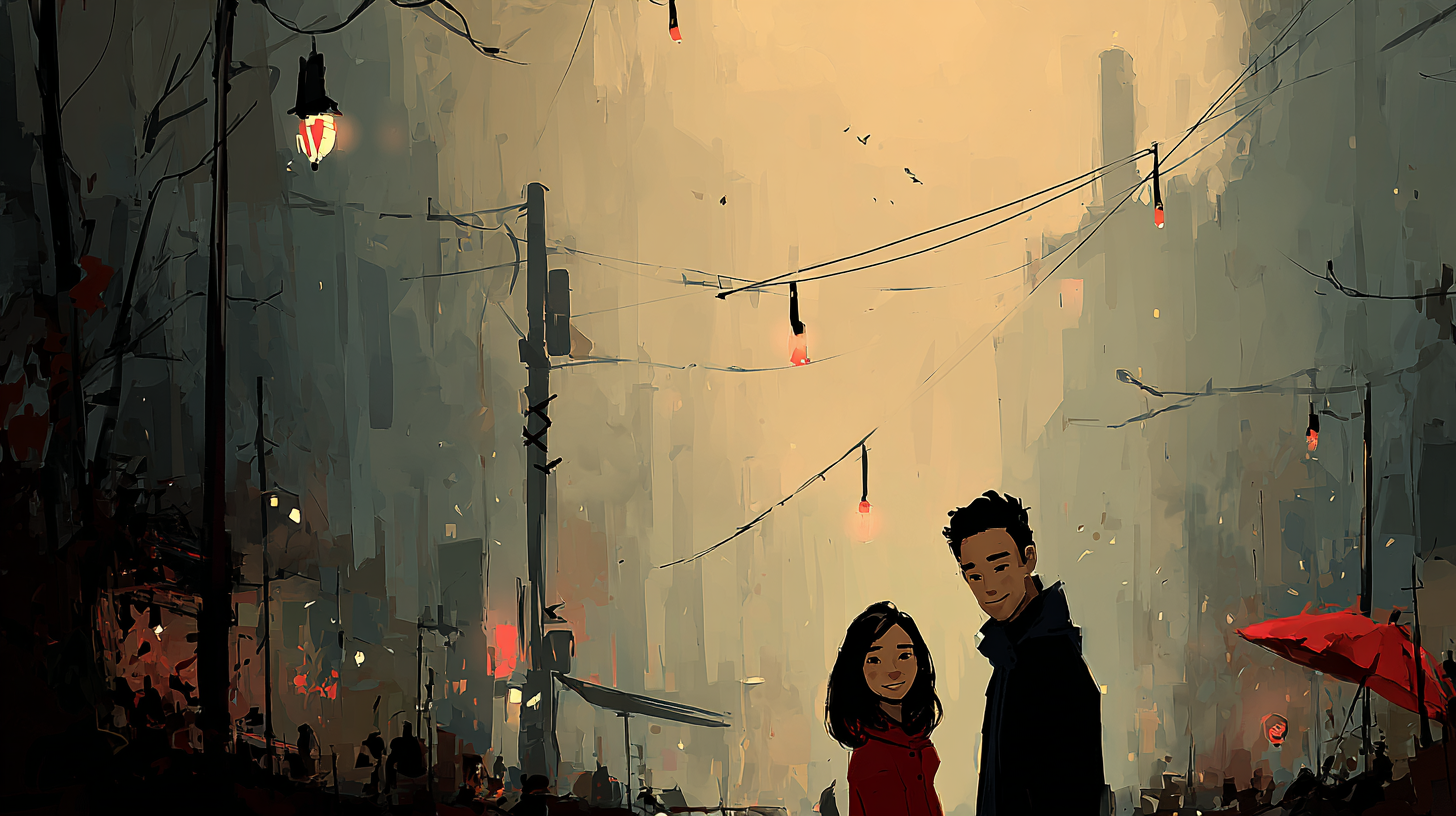“Bump” means to hit something by accident or a small raised area on a surface.
「bump」は何かにぶつかることや、道などにある小さなふくらみを表す言葉です。
以下は英単語 “bump” に関するストーリー型学習コンテンツです。まずは大枠の意味を理解して最後の文章で確認しましょう。
bumpの主な意味(main meaning)
| 品詞 | 意味 | 発音記号 | 英語例文 |
|---|---|---|---|
| 動詞 (verb) | ぶつかる、突き当たる | /bʌmp/ | I accidentally bumped into a chair. |
| 名詞 (noun) | でこぼこ、小さなふくらみ | /bʌmp/ | There was a bump on the road that made the car shake. |
bumpの語源(etymology)
「bump」は中英語に由来し、ぶつかる・打つという突然の衝撃のイメージが語源にあります。擬音語のような響きを持ち、動作の音や感覚に近い言葉です。
bumpの類義語(synonyms)
| 類義語 | 意味 | 英語例文 |
|---|---|---|
| hit | 打つ、ぶつかる | He hit the wall with his shoulder. |
| knock | ノックする、ぶつける | She knocked her elbow on the table. |
| collide | 衝突する | Two cars collided at the intersection. |
| crash | 激しくぶつかる | The bike crashed into the fence. |
bumpの反義語(antonyms)
| 反義語 | 意味 | 英語例文 |
|---|---|---|
| avoid | 避ける | He avoided bumping into the boxes. |
| dodge | よける | She dodged the ball just in time. |
bumpのコロケーション(collocations)
| コロケーション | 英語例文 |
|---|---|
| bump into someone | I bumped into my old friend at the station. |
| a bump in the road | There was a bump in the road ahead. |
| bump one’s head | He bumped his head on the low ceiling. |
| feel a bump | I felt a bump under the carpet. |
| little bump | There was just a little bump, nothing serious. |
bumpの2項表現(binomials)
| 表現 | 英語例文 |
|---|---|
| bumps and bruises | He came home with some bumps and bruises from football. |
| hit and bump | The baby car seat can handle small hits and bumps. |
英語ストーリー(english story)
Title: A Small Bump That Changed Everything
Tom works at a small company in Tokyo. One morning, he was running late and rushed out of his apartment. While turning the corner near the station, he bumped into someone. He quickly apologized, “Sorry!” and helped the woman pick up her dropped bag. She smiled and said, “No problem. I was in a hurry too.”
Tom felt embarrassed but curious. He had seen this woman before in the same train every morning. Her name was Yuki, and she worked at a nearby design firm. They started talking and realized they had a lot in common.
A week later, they met again — not by accident this time. Yuki waved and said, “No bumps and bruises today!” They both laughed.
Over time, their friendship grew. Sometimes, Tom would say, “Watch out for a bump in the road,” when they walked together. They used the word “bump” as an inside joke. Even when they had small problems, they called them “just little bumps.”
One rainy day, Tom was walking carefully to avoid puddles. “Don’t bump your head,” Yuki warned as they entered a low-ceiling café. That day, Tom finally asked, “Would you like to go out for dinner sometime?”
Yuki smiled and said, “After all those bumps, yes, I think we’re on the right road.”
和訳
タイトル:すべてを変えた小さなぶつかり
トムは東京の小さな会社で働いています。ある朝、遅刻しそうになり、急いでアパートを飛び出しました。駅の近くの角を曲がったとき、彼は誰かにぶつかりました(bumped into)。
「すみません!」とすぐに謝り、女性の落としたバッグを拾ってあげました。彼女は笑って「大丈夫。私も急いでたの」と言いました。
トムは恥ずかしくなりながらも興味を持ちました。彼は以前からこの女性を毎朝同じ電車で見かけていたのです。彼女の名前はユキ。近くのデザイン会社で働いていました。話してみると、共通点がたくさんあることがわかりました。
一週間後、今度は偶然ではなく、また会いました。ユキは手を振り「今日は**ぶつけたり、あざ(bumps and bruises)**はないね!」と言いました。2人は笑いました。
その後、友情は深まりました。トムはよく「**道路のでこぼこ(bump in the road)**に気をつけて」と言って歩きました。2人の中で「bump(ぶつかり)」は内輪ネタのような言葉になりました。小さな問題があっても、「ただの小さなでこぼこ(little bumps)」と呼んで笑い飛ばしました。
ある雨の日、トムは水たまりを避けながら歩いていました。「**頭をぶつけないで(bump your head)**ね」とユキが低い天井のカフェに入るときに言いました。その日、トムはついに言いました。「夕食に行きませんか?」
ユキは笑って、「あれだけ**ぶつかった(bumps)**んだから、きっと正しい道にいるんだと思う」と答えました。
bumpのQ&A
- Q「hit」と「bump」の違いは何ですか?
- A
「hit」は「強くぶつける・打つ」意味があり、力が加わるイメージです。「bump」はもっと軽く、偶然ぶつかる感じで使われます。
- Q「knock」と「bump」の使い分けは?
- A
「knock」は「軽くたたく・ぶつける」動作で、音を出す目的がある場合も多いです。一方、「bump」は音よりも接触や衝突の動作そのものを表します。
- Q「collide」と「bump」はどう違いますか?
- A
「collide」は「激しく衝突する」という意味で、事故や重大な衝突によく使われます。「bump」は比較的軽い接触に使います。
- Q「crash」と「bump」の違いは何ですか?
- A
「crash」は大きな音や破損を伴う衝突を指します。「bump」は軽く当たる程度の接触です。
- Q「avoid」は「bump」の反対語としてどう使えますか?
- A
「avoid」は「ぶつからないように避ける」ことを意味します。たとえば “He avoided bumping into the table.” のように使われます。
- Q「dodge」と「bump」の関係は?
- A
「dodge」は「すばやくよける」意味があり、ぶつかる(bump)ことを避ける動作を指します。
- Q「bump into someone」はどんな意味ですか?
- A
「bump into someone」は「誰かに偶然出会う」や「ぶつかる」という意味です。例:”I bumped into my teacher at the mall.”
- Q「a bump in the road」は直訳以外にどんな意味で使われますか?
- A
比喩的に「小さな問題」や「一時的な困難」の意味で使われます。例:”We had a bump in the road, but now everything is fine.”
- Q「bump one’s head」はどんな場面で使いますか?
- A
「頭をぶつける」ことを表します。特に低い天井や棚にぶつかったときに使います。例:”He bumped his head on the doorframe.”
- Q「bumps and bruises」の意味は?
- A
「軽いけが」や「ちょっとしたトラブル」を意味します。文字通りは「こぶとあざ」ですが、日常的には小さな問題のたとえにもなります。



コメント